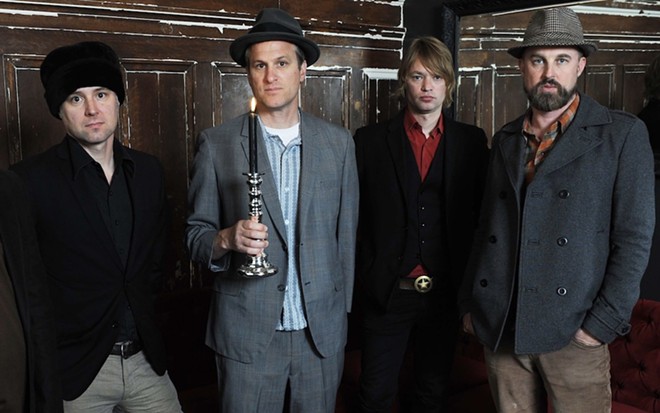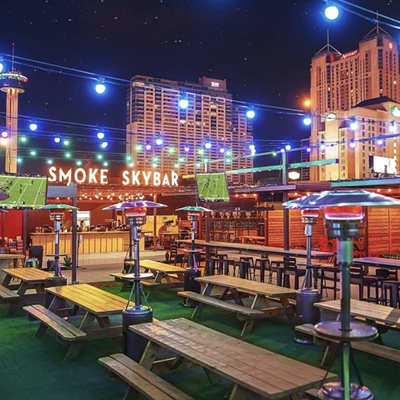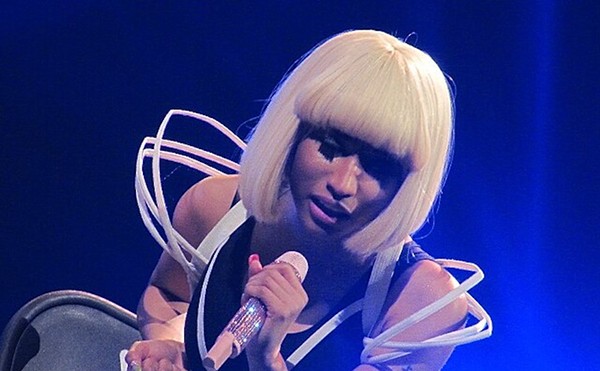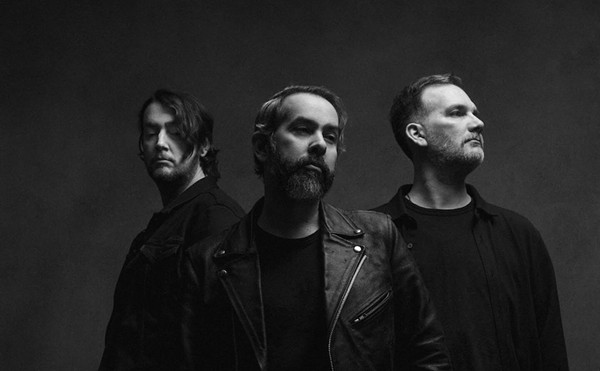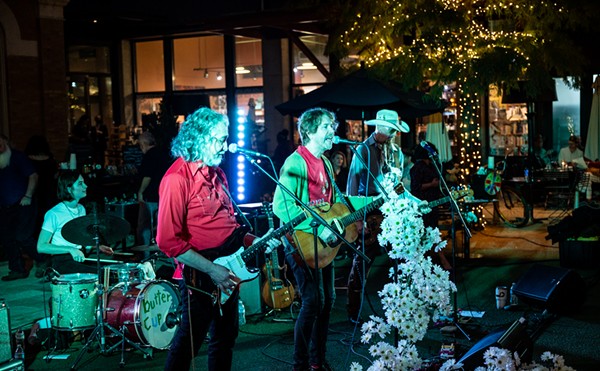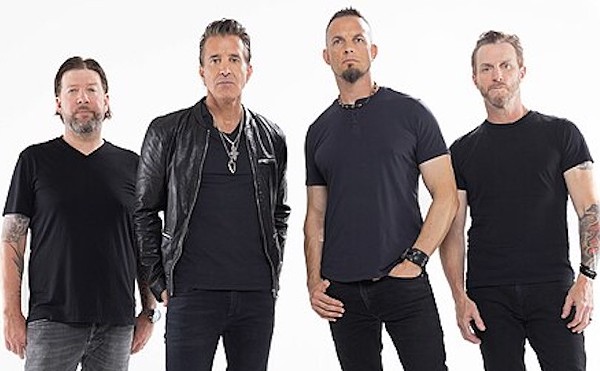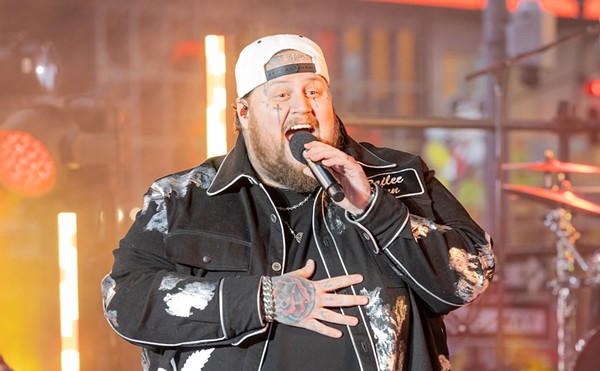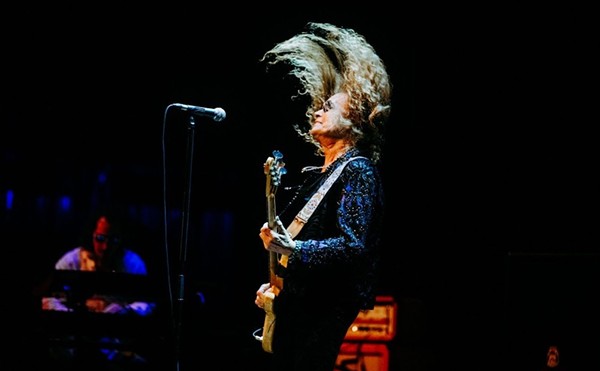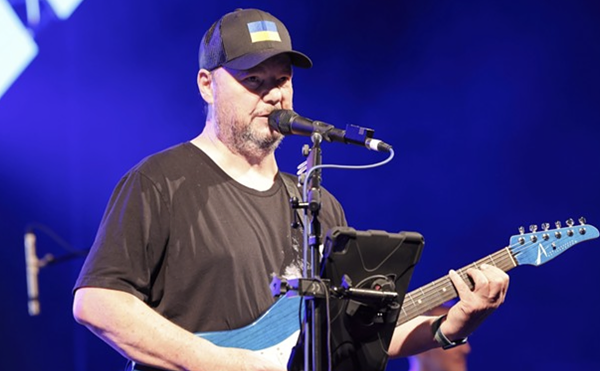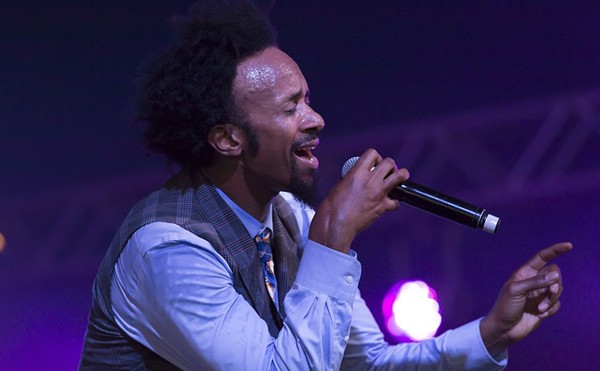By the mid-’90s, grunge had “sort of crumbled a bit, or just fell under its own weight,” McCrea explained. That left the door open for his four-piece band’s quieter, quirkier and more irreverent alt-rock approach.
Cake grabbed a surprising amount of airplay with a distinctive sound punctuated by McCrea’s straight and staccato vocals. The group regularly mashed up divergent musical styles and reveled in oddball snark. Along the way it scored a runaway hit with “The Distance” and also got plenty of attention thanks to a polarizing cover of Gloria Gaynor’s “I Will Survive,” both from 1995’s Fashion Nugget.
McCrea has lived all over the West Coast. Growing up in Sacramento helped shape his musical influences before he relocated to Los Angeles. Eventually, he made his way back to Sacramento and formed Cake in 1991.
Cake’s latest tour takes the band to St. Paul Square venue The Espee on Thursday, Sept. 12.
We caught up with McCrea via Zoom from his home in Portland, Oregon. This conversation was edited for length and clarity.
Let’s begin with the beginning, what are your first musical memories? Was there a song, an album or your parents’ music?
My first memories of music are my parents playing music and keeping me awake when I was starting to fall asleep. My dad would play Eastern European music on his accordion, and my mom would play Woody Guthrie. As I got older, I discovered some of their Bob Dylan and Beatles albums that I really liked.
As a teen, I have a very distinct memory of hearing “Superstition” by Stevie Wonder. Then I got more into rock like Led Zeppelin and Black Sabbath. That’s when I started writing songs, but most of my songs weren’t good.
In college, I started having run-ins with music that I thought I didn’t like, such as big band and country music. My mind was blown by Benny Goodman and Cole Porter. I also remember discovering Hank Williams Sr. and realizing he was one the best songwriters. I started working at a record store, and they put me in charge of the country music section. I didn’t like it until I had some heartbreak. Once I was done rebelling against all of that, I found the utility of it.
It’s interesting to hear how all those influences play out in Cake’s sound. It’s hard to believe your breakout album, Fashion Nugget, is nearly 30 years old. Do you ever think about the serendipity of that time? About being in the right place at the right time to go mainstream?
It’s funny you say that, because a couple things stand out to me. One is there was never a time where I felt like we actually went mainstream. We fell short of that several times, with several songs that almost started going mainstream but didn’t quite. I felt like we were in the wrong place at the wrong time because grunge was king. Grunge was this white male sort of viking music, that was too powerful to be credible. Our thing was sort of aggressive smallness.
I think initially they played us on the radio as sort of a palate cleanser between the real muscular American wide-load rock. Cake playing this dinky-sounding whatever was, like bringing in the court jester.
Eventually, we’re at all these radio festivals with our little dinky beats, with these bands that are way more towering in importance. We’d come back to the same festival three years later and none of those bands were there with us.
[image-2]I think about the legacy of Cake and see you as a staple post-grunge band, along with Weezer and Radiohead. Do you think about how you’re the connective tissue to bands like Death Cab for Cutie or the Killers?
Yeah, I can see some connective strands. Clearly, the one thing is those bands have melodic elements that make their music listenable. And I think ours does too, just in slightly different ways. There is the scale of expression in our music which is more on a human scale, not giant.
But it’s funny, in that same transition period, you have Creed and Nickelback maintaining the white, male viking energy. Grunge was this big, muscular American rock, but like, “I hate myself.” As the bigness transformed in the early 2000s, you didn’t have to hate yourself, you just had to have earnest struggles. It was still very masculine.
Do you think it would be possible to make a band like Cake go in 2024?
It would be pretty rough. The thing is you can get a million or a billion streams. Who can get a billion streams? Like five people in the world. And then you get a check that’s not enough to pay your rent. Music is being monetized, but not very efficiently for the artists that make it.
It’s a weird time. If artists had created some sort of collective identity it might be different. But artists are not supposed to be adults, to collaborate or cooperate. We’re supposed to be stridently individualistic. I think that’s our Achilles heel. I know really important songwriters that are trying to figure out what they’re going to do for a living.
Pop [music] is definitely walking tall right now, because in times of scarcity, you go for the low-hanging fruit. This economy will only pay for super-, immediately satisfying music product.
You have a unique connection to your fans. The band gives away a tree to a fan at every show. It’s become a genuine expression of love between the band and the fans. How does it make you feel that it’s become such a touchstone?
I think it’s great. Anytime you can trick people into interacting with the natural world, I’m for it. It’s not necessarily an environmental statement, but everyone should plant at least one tree during the course of their life. It’s mindblowing to come back to see a tree you planted and 10 years later, it’s a 25-foot-tall life form.
On Cake’s Instagram and website, you have quotes from FDR and Thomas Jefferson, which you don’t see from many bands. Cake registers people to vote and stands up for democracy. How do you view the significance of your activism?
Initially, I was really set on not being overt about our politics and let whatever people could see in the music be the extent of it. That started changing as this extreme rightward shift began happening in this country, that, frankly, is super unsettling. I don’t have the luxury of staying quiet. I’ve got kids and feel like it’s normal to care about the trajectory of your fellow human beings.
Under the circumstances, I think it’s weird that artists are as quiet as they are about politics. I’m not on a pedestal or extra-qualified to communicate. I’m communicating because that’s sort of my duty.
The way I look at it, we’re alive right now. As terrifying and as much of a freak show as this is, we are uniquely able to do more than any other people, because we are the ones who are here right now. And it’s not completely hopeless.
$63, 7:30 p.m. Thursday, Sept. 12, The Espee, 1174 E. Commerce St., (210) 226-5700, majesticempire.com.
Subscribe to SA Current newsletters.Follow us: Apple News | Google News | NewsBreak | Reddit | Instagram | Facebook | Twitter | Or sign up for our RSS Feed

